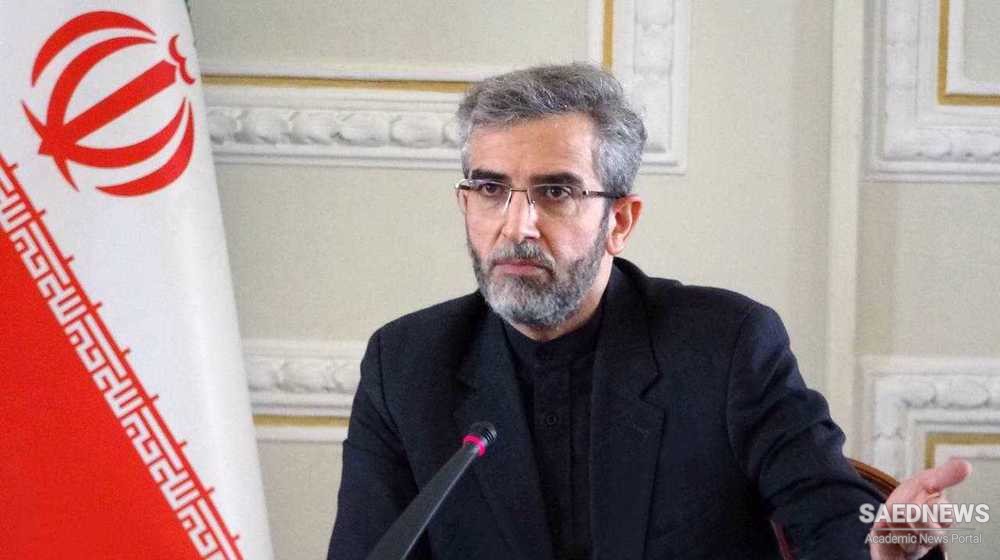Tehran, SAEDNEWS: Ali Baqeri-Kani, Iranian deputy foreign minister for political affairs, made the remarks in an interview with Iran’s Islamic Republic of Iran Broadcasting (IRIB) News Agency on Wednesday, one day after France said the talks with Iran must resume where they left off.
In a telephone conversation with his Iranian counterpart, Hossein Amirabdollahian, French Foreign Minister Jean-Yves Le Drian said it was urgent to resume “the negotiations interrupted on June 20 by Iran, on the basis negotiated up to that date, with the objective of a rapid return (to the accord),” according to a ministry spokesperson.
In response, Baqeri-Kani stressed, “We do not have nuclear talks, because the nuclear issue was resolved in 2015 in the form of an agreement reached between Iran and the P5+1,” namely the US, France, Britain, Germany, Russia and China.
“The main issue we are facing now is the consequences of the US withdrawal from the JCPOA, which are limited to the illegal sanctions imposed against the Islamic Republic of Iran,” he added.
Envoys from Iran and the P4+1 group of countries — Britain, France, Russia, and China plus Germany — are expected to hold the seventh round of discussions in the Austrian capital on November 29.
The negotiations were paused in June, when Iran held a presidential election. Since then, the new Iranian administration has been reviewing the details of the six rounds of discussions held under the previous administration.
Former US President Donald Trump left the JCPOA in May 2018 and re-imposed the anti-Iran sanctions that the deal had lifted. He also placed additional sanctions on Iran under other pretexts not related to the nuclear case as part of his “maximum pressure” campaign.
Following a year of strategic patience, Iran resorted to its legal rights under the JCPOA, which grants a party the right to suspend its contractual commitments in case of non-compliance by other signatories, and let go of some of the restrictions imposed on its nuclear energy program.
The US administration of Joe Biden has said it is willing to compensate for Trump’s mistake and rejoin the deal, but it has shown an overriding propensity for maintaining some of the sanctions as a tool of pressure.
Tehran insists that all sanctions should first be removed in a verifiable manner before it reverses its remedial measures.
On Tuesday, Iran’s top nuclear negotiator travelled to Paris as part of a tour to the capitals of France, Germany and Britain, the three European parties to the JCPOA.
In Paris, he held a meeting with Philippe Errera, director general for political and security affairs at France’s Foreign Ministry.
Elsewhere in his Wednesday’s interview, Baqeri-Kani described as “detailed, frank, serious, constructive and forward-looking” his talks with Errera, whose country will hold the rotating presidency of the Council of the EU in the first half of 2022.
He said France could play a transnational role, noting, “In this regard, I think there is a very good opportunity to improve relations between the Islamic Republic of Iran and France, as well as France’s role in regional interactions and the course of the talks that we will have with the P4+1 in Vienna on November 29.” (Source: PRESS TV)


 Iran’s foreign minister says attempt on Kadhimi’s life aimed at disturbing peace in Iraq
Iran’s foreign minister says attempt on Kadhimi’s life aimed at disturbing peace in Iraq














































